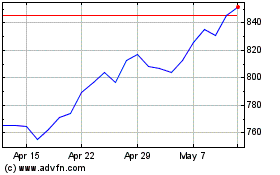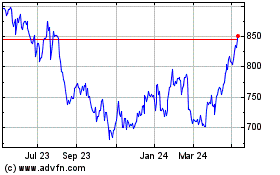WASHINGTON—The U.K.'s top trade official sought to assure
Americans on Monday that London wants to preserve and advance close
economic ties as the country moves to exit the European Union.
Liam Fox, the newly installed international trade secretary,
began a three-day visit to address concerns among some U.S.
officials and business leaders that Britain would withdraw
economically and strategically on both sides of the Atlantic.
In an interview, Mr. Fox argued that Britons would have the
ability to negotiate closer trade and economic links with the U.S.
and other countries after the Brexit process is complete. As part
of the EU, it is one voice among more than two-dozen members
represented in Brussels.
"The first thing is to dispel the idea that Britain leaving the
European Union was somehow an anti-market, anti-free market
decision," Mr. Fox said. "In fact it was the reverse: In my view,
it was about Britain becoming an much more outward-looking
country."
The U.K can't sign trade agreements with other countries while
it is still part of the EU, and London hasn't issued the formal
notification to start negotiations on leaving—a process that could
take two years. The timing is still being debated by the new
Conservative government, but early next year could be best since
the U.K. wants to figure out its new relationships before general
elections in 2020, Mr. Fox said.
On Monday, Mr. Fox met Commerce Secretary Penny Pritzker, U.S.
trade representative Mike Froman and business leaders at the U.S.
Chamber of Commerce. Mr. Fox will also visit Chicago and Los
Angeles this week, meeting executives at Boeing Corp. and attending
business forums with other executives.
The visit comes in a tense year as British voters are realigning
the country's ties to the Continent, nationalist politicians are
gaining ground in some European countries and American voters are
questioning the postwar international trade framework and U.S.
immigration policy, prodded by Republican presidential nominee
Donald Trump.
Mr. Fox said Britons voted to reject government authority in
Brussels, especially the EU's rules on free movement of labor
across borders, but not to rethink the country's centuries-old role
in the international trading system.
By contrast, American politics could be more of a problem for
free trade since both candidates have voiced skepticism of trade's
economic benefits and rejected President Barack Obama's signature
Pacific trade agreement, the Trans-Pacific Partnership, or TPP.
"I think on both sides of this election campaign we would very
much welcome hearing more free-trade voices," Mr. Fox said.
He said London would probably seek to enter a free-trade
agreement with the EU rather than a closer "customs union" that
could restrict its ability to negotiate lower tariffs with other
trading partners.
The U.S. and EU are currently working on a trade agreement, and
officials in London, Washington and Brussels have said the U.K.
could join separately at some point. The proposed U.S.-EU
framework, known as TTIP, faces significant political hurdles.
Messrs. Fox and Froman have also discussed the idea of Britain
joining the 12-nation TPP, although that agreement faces an uphill
battle in Congress and staunch opposition from both parties in the
election season.
Finally, the U.S. and U.K. could work toward a bilateral trade
agreement, something Republican congressional leaders and Obama
administration officials have explored.
"We are absolutely prepared to engage in conversations because
it would be irresponsible not to," Secretary of State John Kerry
said in a news conference with U.K. Foreign Secretary Boris Johnson
last week.
The U.S. is the U.K.'s single biggest export market, accounting
for £ 100 billion ($132 billion), or around 20%, of its £ 510
billion of goods and services exports in 2015, according to
official data. Top exports include drugs, aircraft components and
automobiles; services account for more than half.
"It's not a surprise that we are already seeing these
discussions happening, given how close the U.K. and U.S. are, both
economically and politically," said Emanuel Adam, director of
policy and trade at British American Business, which promotes
closer commercial ties between U.S. and U.K. firms.
Completing a free-trade deal would likely mean not only reducing
or eliminating any tariffs on goods but also dismantling services
barriers and regulatory impediments to trade, which can be
daunting.
"It's going to be much, much trickier to come to an agreement on
that front," said Sam Bowman, executive director of the Adam Smith
Institute, a free-market think tank based in London.
As the bigger partner, the U.S. would probably have the upper
hand in negotiations, said Stephen Booth, a co-director at think
tank Open Europe.
Jeff Lewis, managing director of Resultz Ltd., a Manchester,
England-based provider of training courses for business executives,
said a trade deal could potentially be a big benefit for his firm
as he currently faces import duties in the U.S.
"It would be beneficial because our costs would be more
competitive," he said.
Martin Sorrell, group chief executive of London-based
advertising giant WPP PLC, said he'd welcome a trade deal between
the two countries. "Any further trade liberalization would help our
clients and therefore us," he said.
Jenny Gross in London contributed to this article.
Write to William Mauldin at william.mauldin@wsj.com and Jason
Douglas at jason.douglas@wsj.com
(END) Dow Jones Newswires
July 25, 2016 16:55 ET (20:55 GMT)
Copyright (c) 2016 Dow Jones & Company, Inc.
Wpp (LSE:WPP)
Historical Stock Chart
From Mar 2024 to Apr 2024

Wpp (LSE:WPP)
Historical Stock Chart
From Apr 2023 to Apr 2024
